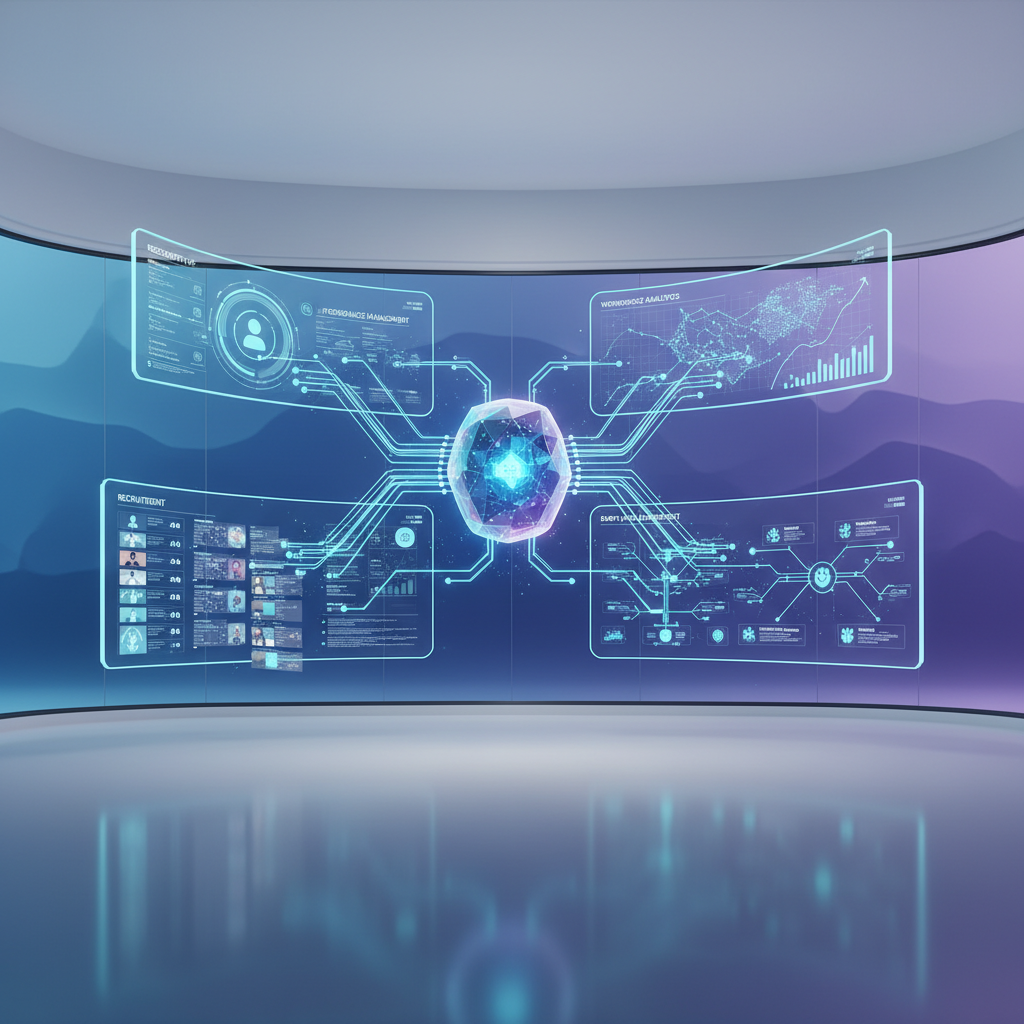
Frameworks, core principles and top case studies for SaaS pricing, learnt and refined over 28+ years of SaaS-monetization experience.
Thank you! Your submission has been received!
Oops! Something went wrong while submitting the form.
Join companies like Zoom, DocuSign, and Twilio using our systematic pricing approach to increase revenue by 12-40% year-over-year.

In the rapidly evolving landscape of human resources, a new technological paradigm is emerging: agentic AI. Unlike traditional AI systems that simply respond to commands, agentic AI possesses the capability to take initiative, make autonomous decisions, and act on behalf of organizations. This evolution represents a significant leap forward for HR departments worldwide, offering unprecedented opportunities to revolutionize talent management intelligence.
Agentic AI refers to artificial intelligence systems that can operate independently to achieve specific goals. These systems can understand complex instructions, plan sequential steps, adapt to changing circumstances, and take action without constant human oversight.
For HR professionals, this technology isn't just another tool—it represents a fundamental shift in how talent management functions operate. Agentic AI differs from conventional HR AI systems by moving beyond passive analysis to active participation in workforce management processes.
According to research from Gartner, by 2025, more than 30% of large organizations will be using AI-augmented decision-making in their HR functions, up from less than 5% in 2021. This rapid adoption highlights the transformative potential that advanced AI systems offer to human resources departments.
Recruitment remains one of the most resource-intensive aspects of HR. Agentic AI is poised to transform this landscape in several significant ways:
Traditional recruitment intelligence tools can match candidates to job descriptions, but agentic AI goes much further. These systems can:
A study by LinkedIn found that 67% of hiring managers believe AI has saved them time in the recruitment process. Agentic AI promises to expand these benefits exponentially.
One of the most promising applications of agentic AI in recruitment is its ability to reduce unconscious bias while maintaining personalized candidate experiences.
"AI doesn't eliminate the human element from hiring—it enhances it by focusing human judgment on what matters most," explains Dr. Tomas Chamorro-Premuzic, Chief Talent Scientist at ManpowerGroup. "Agentic AI can standardize the evaluation of technical skills while giving recruiters more bandwidth to assess cultural fit and soft skills."
The evolution of workforce analytics represents perhaps the most dramatic shift in how agentic AI will transform HR operations.
Traditional workforce analytics progressed from descriptive (what happened) to predictive (what might happen). Agentic AI introduces the next phase: autonomous action based on complex workforce data.
These systems can:
According to IBM's HR 3.0 study, organizations that implement advanced AI-driven workforce analytics are 66% more likely to outperform their peers in revenue growth and profitability.
Performance management is transitioning from annual reviews to continuous feedback systems. Agentic AI accelerates this evolution by:
"The future of performance management isn't just about more frequent feedback—it's about more intelligent feedback," says Josh Bersin, global industry analyst. "Agentic AI systems can understand the nuances of performance in ways that transform how we develop talent."
Despite its potential, implementing agentic AI in talent management intelligence comes with significant considerations:
As agentic AI systems collect and act upon increasingly personal employee data, organizations must establish clear governance frameworks that protect privacy while maintaining transparency about how AI influences decisions.
The Society for Human Resource Management (SHRM) reports that 85% of employees are concerned about how their personal data might be used in AI systems. Addressing these concerns through clear policies and opt-in systems will be crucial for successful implementation.
While agentic AI can automate many HR functions, the most successful implementations will blend AI capabilities with human expertise.
"The goal isn't to replace HR professionals with machines," notes Jeanne Meister, founding partner of Future Workplace. "It's to elevate HR from administrative functions to strategic business partnership by delegating repetitive tasks to AI agents while focusing human talent on relationship building and complex decision-making."
Organizations looking to leverage agentic AI in talent management should consider these strategic steps:
As we look toward the future of talent management intelligence, the most successful organizations will be those that view agentic AI not as a replacement for human resources professionals but as a powerful partner that enhances human capabilities.
By delegating repetitive tasks and complex data analysis to AI agents, HR departments can focus on what humans do best: building relationships, exercising empathy, and making nuanced judgments about people and culture.
The transformation of HR through agentic AI isn't just about technological advancement—it's about reimagining how organizations discover, develop, and engage talent in an increasingly complex business environment. Those who embrace this shift thoughtfully stand to gain significant competitive advantages in the war for talent and organizational effectiveness.

Join companies like Zoom, DocuSign, and Twilio using our systematic pricing approach to increase revenue by 12-40% year-over-year.